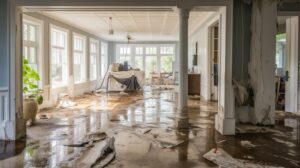
Installing blinds for balcony spaces has become more than just a trending home improvement—it’s a strategic investment that transforms forgotten outdoor areas into year-round sanctuaries of comfort and privacy. In Singapore’s relentless tropical climate, where scorching sunshine alternates with torrential downpours, the right exterior window treatments can mean the difference between a useless concrete slab and a genuinely liveable extension of your home.
The harsh reality facing most balcony owners is this: without proper protection, these valuable square metres become hostile environments for nine months of the year. Yet with thoughtful selection of outdoor screening solutions, you unlock potential that estate agents and architects have long recognised but homeowners often overlook.
The Singapore Climate Challenge: Why Standard Solutions Fail
Singapore’s meteorological brutality demands more than basic awnings or flimsy coverings. With an average of 167 rainy days a year, many balconies are left exposed to weather elements, creating spaces that remain perpetually unusable. The combination of intense UV radiation, humidity levels that rival tropical rainforests, and sudden weather shifts presents a unique challenge that requires engineered solutions rather than decorative afterthoughts.
Traditional indoor window treatments simply cannot withstand this assault. Fabric deteriorates within months, metal components corrode, and mechanical systems jam under the constant stress of thermal expansion and moisture penetration. This is why balcony screening systems must be purpose-built for outdoor environments, not repurposed from interior applications.
Regulatory Reality: What Singapore Authorities Allow
Before investing in any outdoor blind system, understanding the regulatory landscape proves crucial. HDB Requirements: Only roller or retractable blinds are permitted. They must be installed within the balcony area and must not obstruct emergency exits. This restriction eliminates many European-style solutions that extend beyond balcony boundaries.
For condominium residents, the situation becomes more complex. Each condo has different bylaws. Some require prior approval from the Management Corporation Strata Title (MCST) before installation. Most management corporations maintain strict aesthetic guidelines, including:
• Approved fabric colours and textures
• Maximum span limitations (typically 3 metres)
• Installation methods that preserve building facades
• Maintenance responsibilities and warranty requirements
Failure to comply with these regulations can result in forced removal and substantial penalties, making upfront research essential rather than optional.
Track-Guided Systems: The Engineering Advantage
The evolution from basic roller blinds to track-guided systems represents a genuine technological advancement, not merely marketing innovation. Standard roller blinds with cable guides create “sail” effects in strong winds, placing enormous stress on mounting points and fabric integrity. Track-guided alternatives eliminate this problem by constraining fabric movement within precision-engineered channels.
This engineering approach delivers measurable benefits:
• Wind resistance: Eliminates fabric flapping and reduces stress on mounting systems
• Seal integrity: Creates barriers against insects, dust, and moisture infiltration
• Operational reliability: Smooth movement even after thousands of cycles
• Aesthetic coherence: Clean lines that complement modern architectural styles
The difference becomes apparent during Singapore’s frequent thunderstorms, when conventional systems struggle and track-guided installations continue functioning normally.
Fabric Technology: Beyond Basic Sunscreen Materials
Modern balcony blind fabrics represent sophisticated material science rather than simple textile manufacturing. The key distinction lies in understanding perforated versus solid fabric construction, each serving different environmental challenges.
Perforated sunscreen fabrics allow air circulation whilst filtering solar radiation, making them suitable for daytime comfort and maintaining outside visibility. However, these materials provide limited privacy after dark when interior lighting creates silhouette effects. Solid fabrics offer complete privacy and superior rain protection, but eliminate airflow and outside views.
Advanced fabric options now include:
• UV-treated materials: Resist fading and degradation under intense tropical sun
• Anti-microbial treatments: Prevent mould and mildew growth in humid conditions
• Thermal barrier coatings: Reflect heat whilst maintaining flexibility
• Hydrophobic finishes: Improve water resistance without compromising breathability
Smart Integration: Automation That Makes Sense
Motorised blind systems have evolved beyond luxury conveniences to become practical necessities for Singapore living. The ability to respond instantly to weather changes proves invaluable when sudden tropical storms strike during working hours.
Modern automation systems integrate with home climate control, automatically adjusting based on temperature, sunlight intensity, and weather forecasts. Voice control and smartphone applications allow remote operation from anywhere, whilst weather sensors can trigger protective positions during unexpected storms.
For families with young children or elderly residents, motorised operation eliminates the physical effort required to operate large blind systems, ensuring consistent usage rather than seasonal abandonment.
Investment Returns: Quantifying the Financial Benefits
Quality balcony screening systems deliver measurable returns through multiple channels. Reduced air conditioning costs result from blocking solar heat gain before it penetrates glass surfaces. An extended usable space effectively increases your property’s functional square footage without renovation costs.
Property valuations reflect these improvements, with well-executed balcony enclosures adding disproportionate value compared to their installation costs. Estate agents consistently report stronger buyer interest in properties with thoughtfully designed outdoor spaces that function year-round.
Maintenance costs also favour quality installations over budget alternatives. Premium systems with comprehensive warranties require minimal intervention over decades, whilst cheaper options demand frequent repairs and eventual replacement.
Professional Installation: Why Expertise Matters
The complexity of modern blind systems demands professional installation rather than DIY approaches. Structural load calculations, weatherproofing details, and electrical integration require specialised knowledge that weekend projects cannot replicate.
Professional installers understand Singapore’s building codes, MCST requirements, and manufacturer warranty conditions. They carry appropriate insurance coverage and provide remediation if installation errors occur. Most importantly, they ensure systems operate correctly from day one rather than requiring adjustment periods that compromise performance.
Conclusion: Making the Strategic Choice
The transformation of Singapore balconies from weather-beaten afterthoughts to comfortable outdoor rooms depends entirely on choosing appropriate screening solutions. Climate demands, regulatory requirements, and technological capabilities converge to make quality blinds for balcony installations one of the most impactful home improvements available to tropical homeowners.







